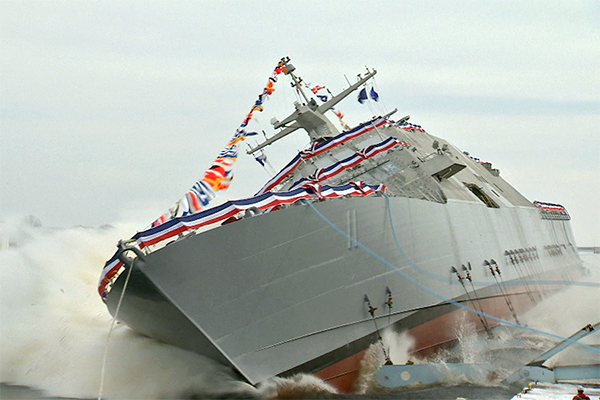 In a previous post, I questioned the wisdom of a defense procurement strategy of buying expensive, technologically advanced weapons systems while they are still being developed and before they have been proven combat effective. One of the examples I cited was the U.S. Navy’s Littoral Combat Ship (LCS) program.
In a previous post, I questioned the wisdom of a defense procurement strategy of buying expensive, technologically advanced weapons systems while they are still being developed and before they have been proven combat effective. One of the examples I cited was the U.S. Navy’s Littoral Combat Ship (LCS) program.
(The LCS should not be confused with the Navy’s new guided-missile destroyer U.S.S. Zumwalt, which recently suffered an embarrassing propulsion system failure at sea, necessitating a tow back to port for repairs).
The incoming Trump administration is going to have a decision to make with regard to the LCS. Congress approved procurement of 40 total LCSs in the recent National Defense Authorization Act of 2017. The Navy has already built, purchased, or ordered 28. It intends eventually to build up to a fleet of 52 small surface combatant ships, either LCSs or a modified version it has classified as a frigate. As part of its 2018 budget request, the Navy wants $14 billion for the final 12 authorized vessels and their associated weapons systems to fund a “block” purchase.
However, at a Senate Armed Services Committee hearing on 1 December, the General Accounting Office, a Defense Department representative, and various senators criticized the LCS program for “for cost overruns, engineering failures, and more.” They called for reduced, rather than increased, spending on it.
On the campaign trail, President-elect Donald Trump promised to expand the Navy to 350 ships as part of his proposals to “upgrade America’s military.” The Congressional Research Service has predicted the Navy would increase its total request to 56 small surface combatants.
The outcome remains to be seen, but a potential spanner in the works to Trump’s plans may be the recent revelation in the Washington Post of a Defense Department internal report that alleged that it was wasting up to $125 billion annually on poor business administration. Congress is expected to pass a continuing resolution this month to allow for negotiation of a new budget in early 2017.
